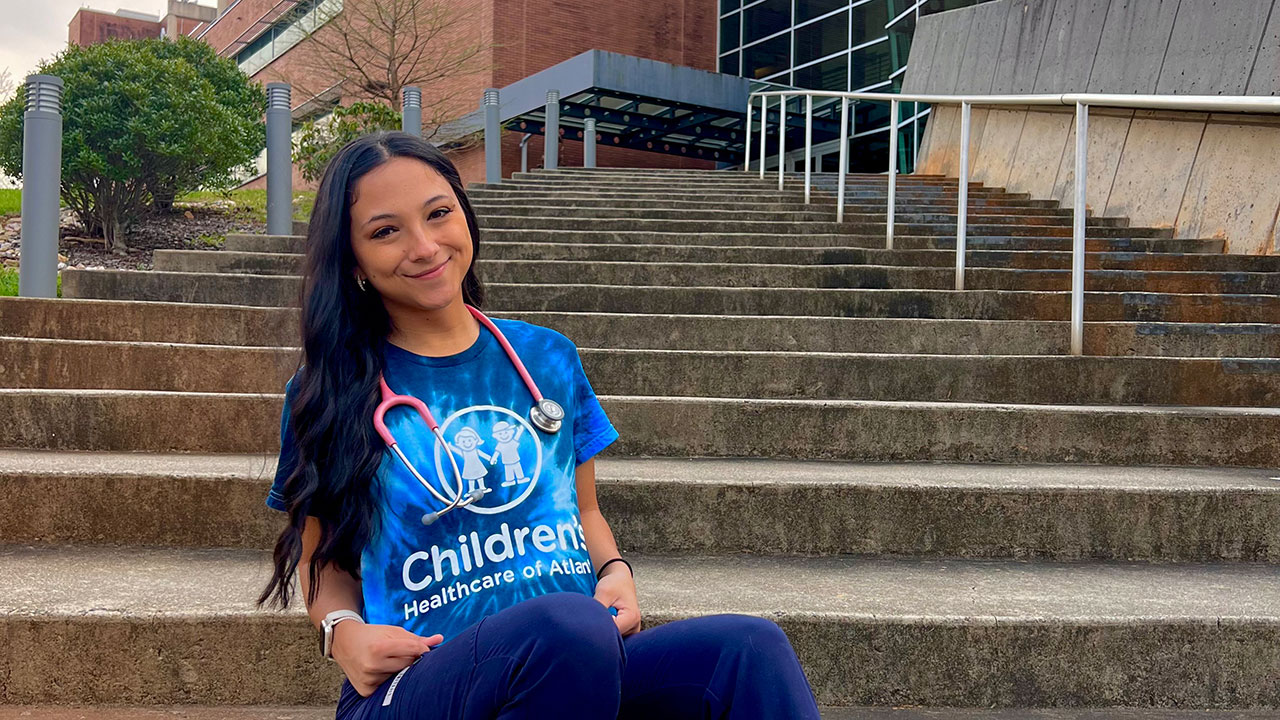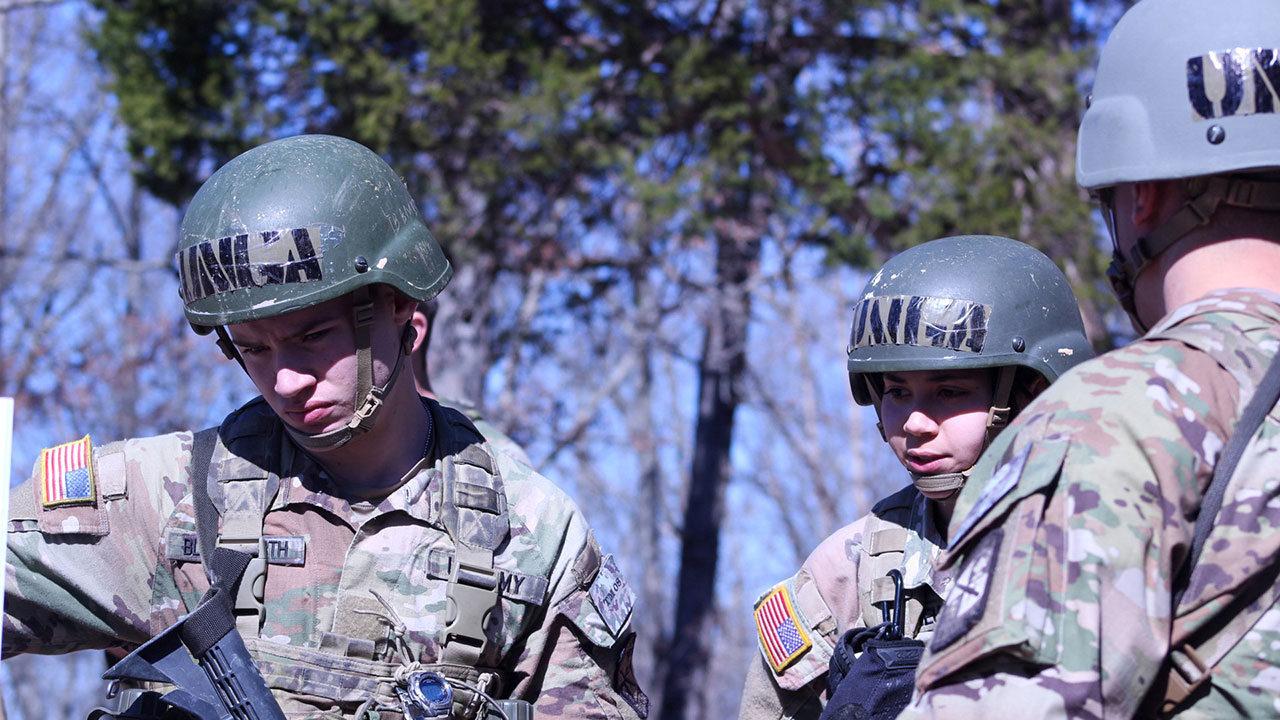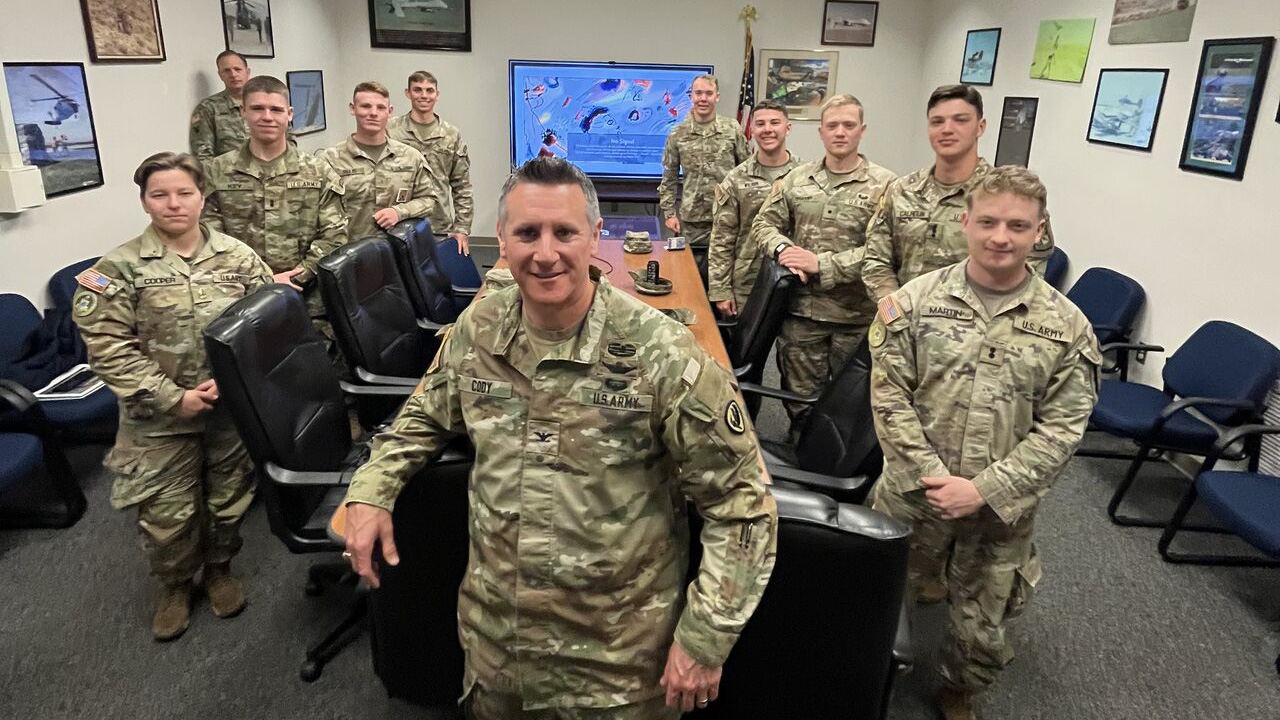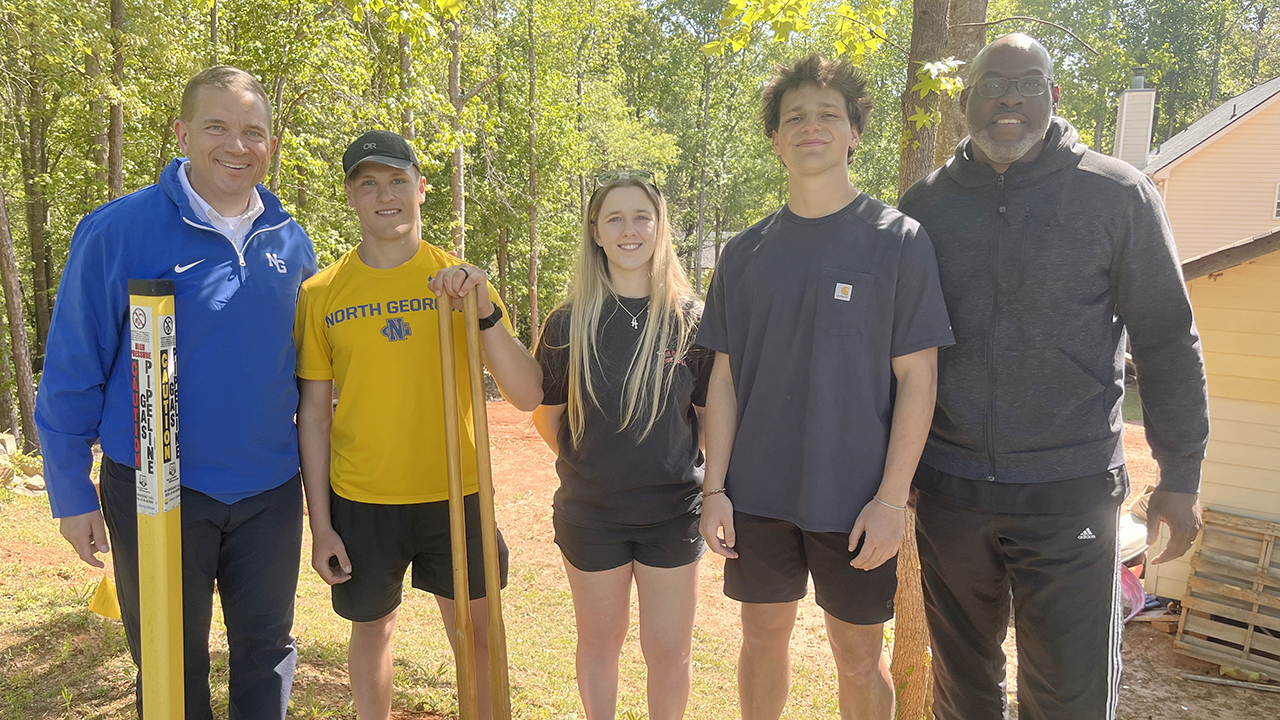Research projects aim to improve cadets' ruck march performance

Article By: Staff
Before the sun rose over the University of North Georgia's (UNG) Dahlonega Campus, hundreds of cadets in full combat gear, including a 35-pound sack, lined up on the drill field for their third ruck march of the academic year. Their task was to complete an 8-mile march around campus.
Standing nearby and armed with a laptop, a clipboard and pen was Dr. Greg Palevo, assistant professor of kinesiology. He was poised to collect data from eight Corps of Cadets members who are part of the Leadership Development Program and subjects in his research project.
The data Palevo collected is of the cadets' body composition, as well as cardiovascular, physical and cognitive functions during the ruck march. He plans to use the data for two purposes. First, it compiles data on cadets' physiological responses during a ruck march that lays the foundation for research purposes and projects. Second, he will use the information to help cadets improve their performance through better nutrition.
"The cadets could burn thousands of calories during a three-hour ruck, but they could perform better if they take in carbohydrates before or during the march," he said.
Helping Palevo with the research are Dr. Michael Polascik, assistant professor of physical therapy, and Dr. Don Walsh, associate professor of physical therapy. The trio published a paper based on the 2018-19 pilot project. Palevo wanted to extend the project and UNG officials agreed. He was awarded a Presidential Incentive Award to conduct the research on 50 cadets next year.
The Corps of Cadets and its cadre are assisting with the project. They plan to use the data on energy efficiency and output to better train the cadets.
"We want to know the most efficient way we can get a cadet from their entry-level point to a 12-mile road march without suffering an injury. And we think the study can help us with that possibility," said Capt. Jordan Allison, assistant professor of military science.
He said the addition of the physical therapists in the research is a bonus. They can help injured cadets recover better.
"We can take an injured cadet through a logical process and come back to physical activity," Allison said.
Palevo explained cadets' performances in ruck marches and other pre-camp activities depend on their physical preparation as well as their nutritional habits. He said many cadets do not understand that what they eat before, during and after a march can impact their performance. He equated it to a football team, in which one player falters near the end of a game because of fatigue and another player does not.
"When I look at the Corps of Cadets, I view them just as I would view athletes," he said. "They are highly trained athletes and they deserve the same focus as professional teams regarding their health."
To help, Palevo plans to educate the cadets on their nutritional needs. But first, he must understand the rigors cadets undergo during a ruck march.
"We wanted to see what the demands are on the body such as the heart rate, blood pressure, and how many steps they take per minute," Palevo said.
To garner this data, cadets wear a Wahoo Monitor to track these stats on their cell phones through an app and connected Bluetooth device. They also fill out questionnaires to gauge their knowledge of sports nutrition.
"They will fill it out after the study to see if their knowledge has improved," Palevo said.
One cadet also wears a portable metabolic system during the march. It collects oxygen consumption, carbon dioxide production, respiratory rate and respiratory exchange ratio during the ruck marches. Palevo said every breath he took was analyzed.
"We want to identify for the cadets where they are lacking and can improve," Palevo said.



